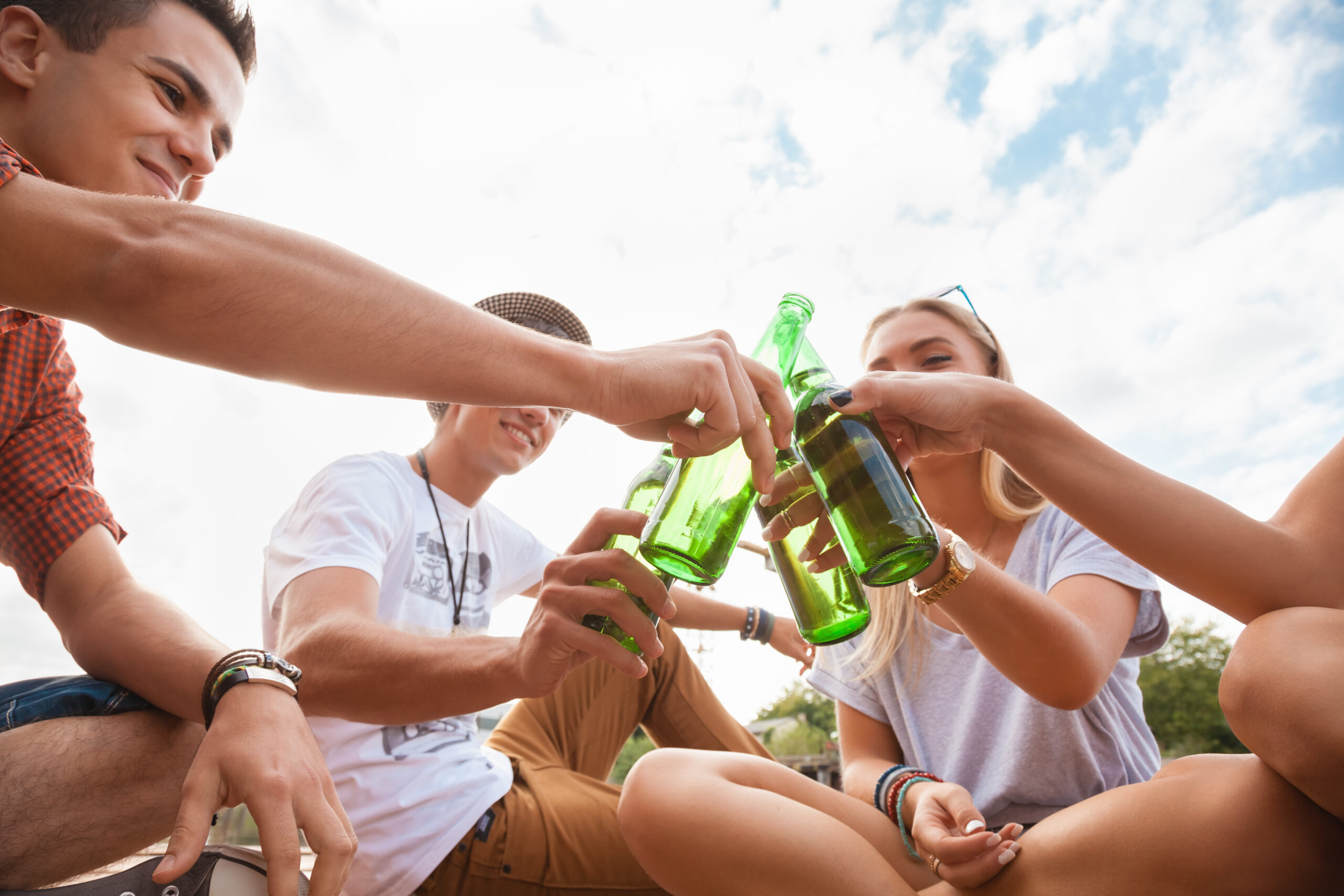
As outlined in our article on the amazing teenage brain, the teenage brain develops in an unbalanced way. The amygdala, which is in charge of emotions, develops really quickly as soon as puberty starts – so around 10 or soon after. The prefrontal cortex, which is in charge of restraint, thinking, control and all things more logical, develops much more slowly. Teenagers’ brains don’t really “balance” out again until at least their early 20s. This is why teenagers, on the whole, exhibit more risky behaviour during adolescence.
If teenagers are going through this important distancing and independence phase, should we, as parents, just let them drink? The research appears to answer with a resounding “NO.” There are several reasons for this. One is that teenagers are generally also learning to drive at the time they start drinking – and motor accidents are the biggest cause of teenage deaths. It’s worth restating that –
MOTOR ACCIDENTS ARE THE BIGGEST CAUSE OF TEENAGE DEATH.
A second, equally powerful, reason is that research is showing more and more how alcohol impairs the development of the teenage brain.
Periodic heavy drinking, or binge drinking, has worse effects than smaller amounts of alcohol consumed more frequently. This is because extremely high blood alcohol levels are toxic to organs, encourage addiction, and seriously impair brain and sensory function.

Telling your teenager that his brain might be harmed by heavy drinking may have limited success, since teenagers as a group, are less capable of making sensible long term decisions, and lean towards some reckless and risky behaviours.
A more general way of assessing if your teenager will be at risk of alcohol abuse is to see if you have a family history of alcohol problems. If so, this is a risk factor for your teenager. Starting drinking earlier is also a risk factor. A teenager who starts drinking at 14 is 4 times more likely to become addicted to alcohol than a person who starts drinking at 21.
Binge drinking is the main danger for teenagers – and families who don’t know where their teenagers are on the weekend are more at risk of this happening.
Studies published in America in 2014 and 2015 (Tapert et al) show that 24% of high school students and 44% of college students regularly binge drink. The studies also suggest that these students may be impairing their brain development. They score around 7-10% lower on assessment tests than the students in their classes that don’t drink, or don’t binge drink.
Enough long term data on brain development now exists, according to a study by Squeglia in 2015 to suggest a “call for caution regarding heavy alcohol use” by teenagers.
There isn’t enough research yet to show whether the brain can recover from heavy drinking during the final years of its development.
As a parent, you need to be very aware of the potential impact on your teenager and do what you can to understand why your teenager is exhibiting apparently reckless behaviour. You will need to keep the lines of communication open and put what protective mechanisms that feel appropriate for your family in place as early as possible. Separating the age of starting drinking and driving is a good start. Drinking moderately at home with meals can help – the French have a tradition of doing this and French teenagers binge drink a lot less than English and American teenagers. Being aware of the potential long-term impacts is a good start – and helping provide supporting mechanisms – ideally in advance – is an even better one.
Plant, M.A. and Foster, J. Teenagers and alcohol: results of a Scottish national survey. Drug and Alcohol Dependence. Volume 28, Issue 2, August 1991, Pages 203-210.
Teenagers and Alcohol Misuse in the United States. Ellickson, Phyllis L.; Mcguigan, Kimberly A.; Adams, Virgil; Bell, Robert M.; Hays, Ron D.Addiction, Volume 91, Number 10, 1 October 1996, pp. 1489-1504(16)
Brain Development in Heavy-drinking Adolescents. Squeglia, L. et al. in American Journal of Psychiatry, Vol. 172, No. 6, pp 531-542; June 2015)
The Effect of Alcohol Use on Human Adolescent Brain Structures and Systems. Tapert, S.F. et al in Handbook of Clinical Neurology, Vol. 125, pp 501-510; 2014.
NHS England is dedicated in ensuring that the principles and duties of safeguarding adults and children are holistically, consistently and conscientiously applied with the wellbeing of all, at the heart of what they do.